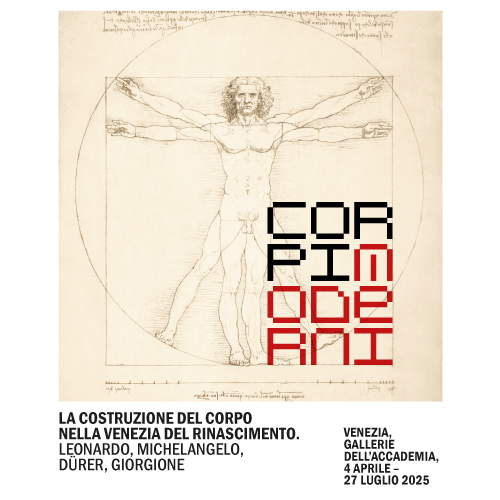Start of restoration of Montorfano Crucifixion, opposite Leonardo's Last Supper
Restoration of the Crucifixion by Donato Montorfano (Milan, c. 1460 - 1502) and the wall paintings that adorn, in the refectory of Santa Maria delle Grazie, the west wall, the one miraculously spared from the bombings of World War II, began last December 13 at the Museo del Cenacolo Vinciano. The work is the “opposite” of Leonardo da Vinci’sLast Supper. The intervention, announced in February 2021 as one of the priority ones for the Regional Museums Directorate of Lombardy, was started after the preparation of the challenging construction site and at the end of the contracting process, which saw the awarding to AuriFoliaRestauri, of Turin.
The design of the intervention was carried out by Michela Palazzo, who directed the museum until shortly before the start of construction. Work direction, on the other hand, is entrusted to Emanuela Daffra, no stranger to challenging construction sites, assisted by Lorenza dall’Aglio and Silvia Zanzani, an architect who a few days ago left the Direction of the Scaliger Castle in Sirmione to take on precisely that of the Cenacolo Vinciano.
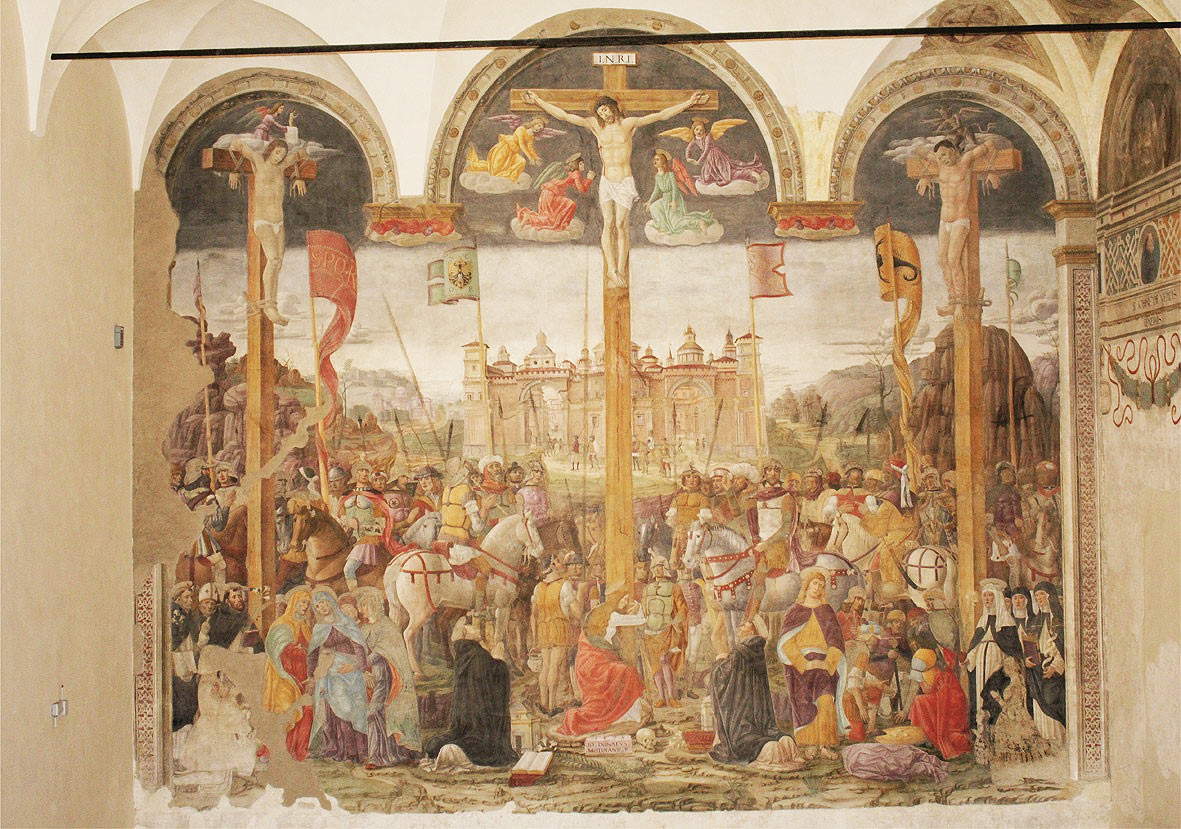
Restoration activities, in the first stages, are focused on the large fresco of the Crucifixion, and then proceed on the side wall. On this wall and on the vault there are decorative motifs made from 1488, while two decorated lunettes are visible at the ends. The one adjacent to theLast Supper depicts a coat of arms in a garland of leaves and fruit and is attributed to Leonardo da Vinci himself. Also of almost certain Leonardo attribution are the portraits of Ludovico il Moro with his wife Beatrice d’Este and their children, placed in the lower part of the Crucifixion and now almost entirely lost.
Every aspect of the intervention, including the site layout, was designed to minimize its impact on the refectory, a delicate and complex environment strenuously protected from dust and pollutants. That’s not all: the various works have been organized and scheduled so that the Museum can remain open for the duration of the work, reserving the more intricate or noisier works for closing times; details of the temporarily hidden work are offered to visitors via a ledwall; and the progress of the construction site is chronicled on the website through constant updates.
“The construction site, which was created for conservation needs, will also be an important opportunity to learn more about the history of the building, the work of Montorfano, and the ducal effigies,” says Emanuela Daffra, regional director museums of Lombardy. “Already from the first weeks of work it seems clear that many of the commonplaces about this painting will have to be revised and that the systematic study of its ’subject matter’ will help unravel the events of a crucial place for Renaissance Milan. The care of the very cohesive internal working group, however, has been manifold, aimed both at the preservation of the paintings and at the public.”
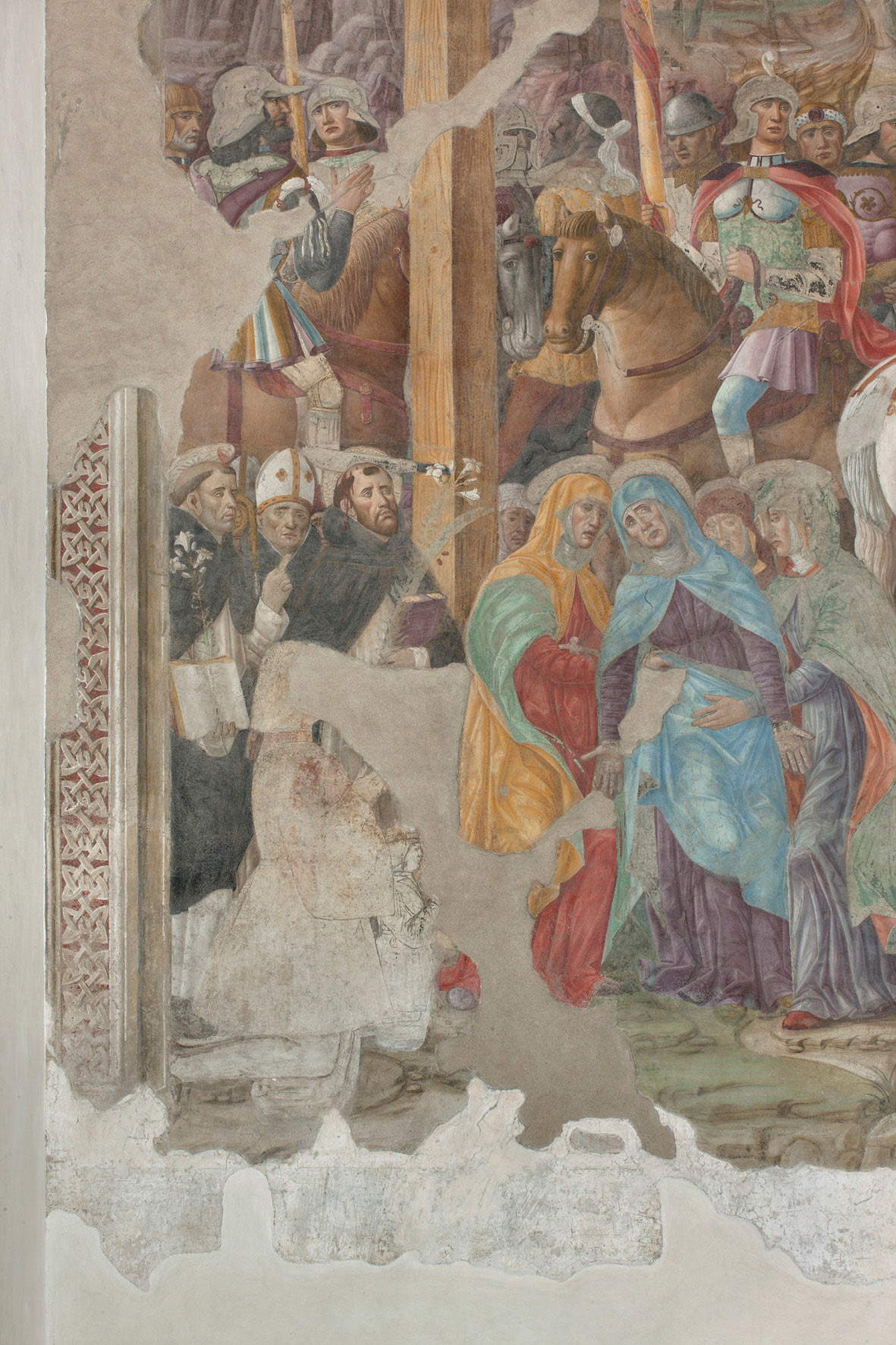
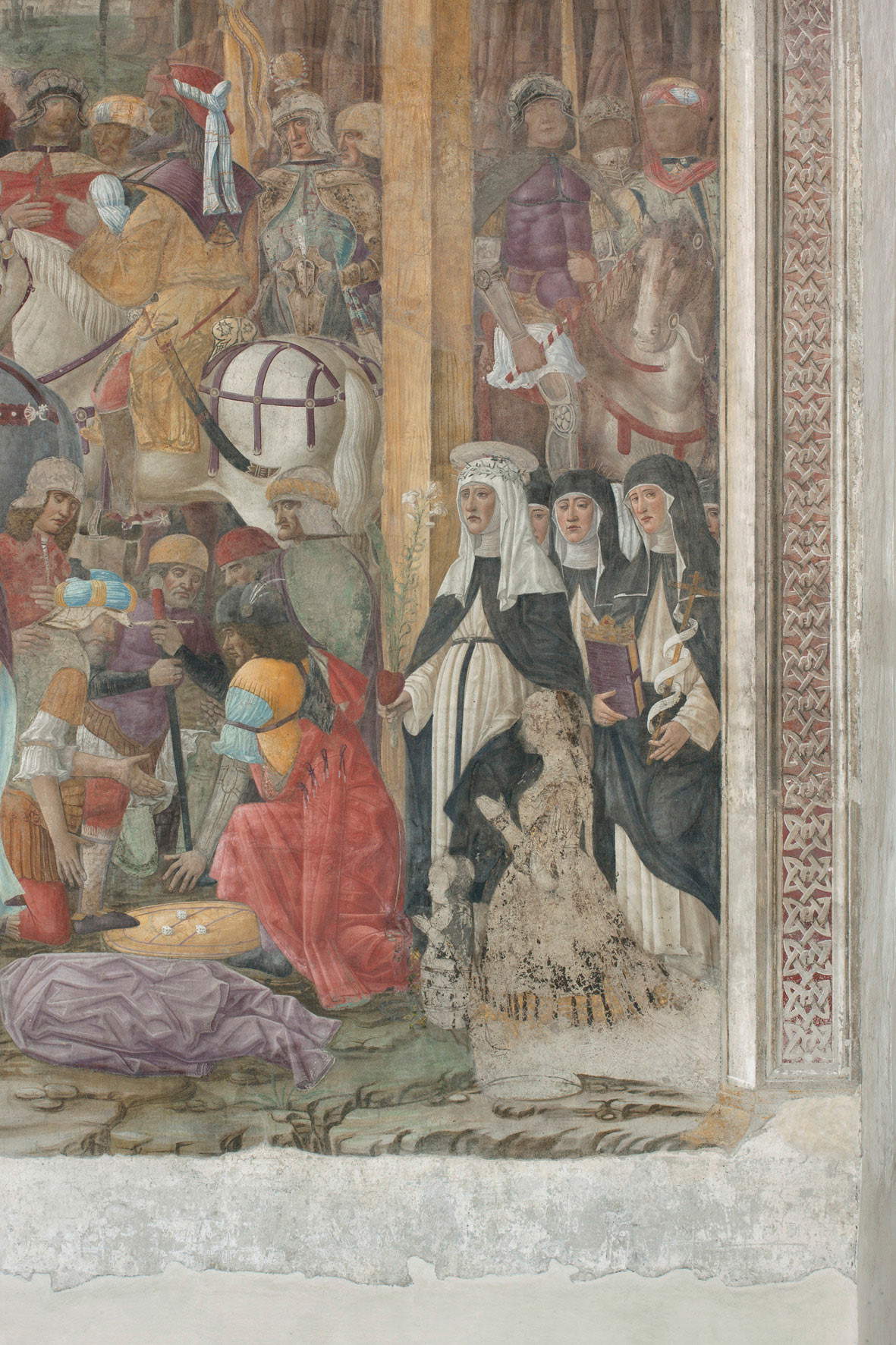
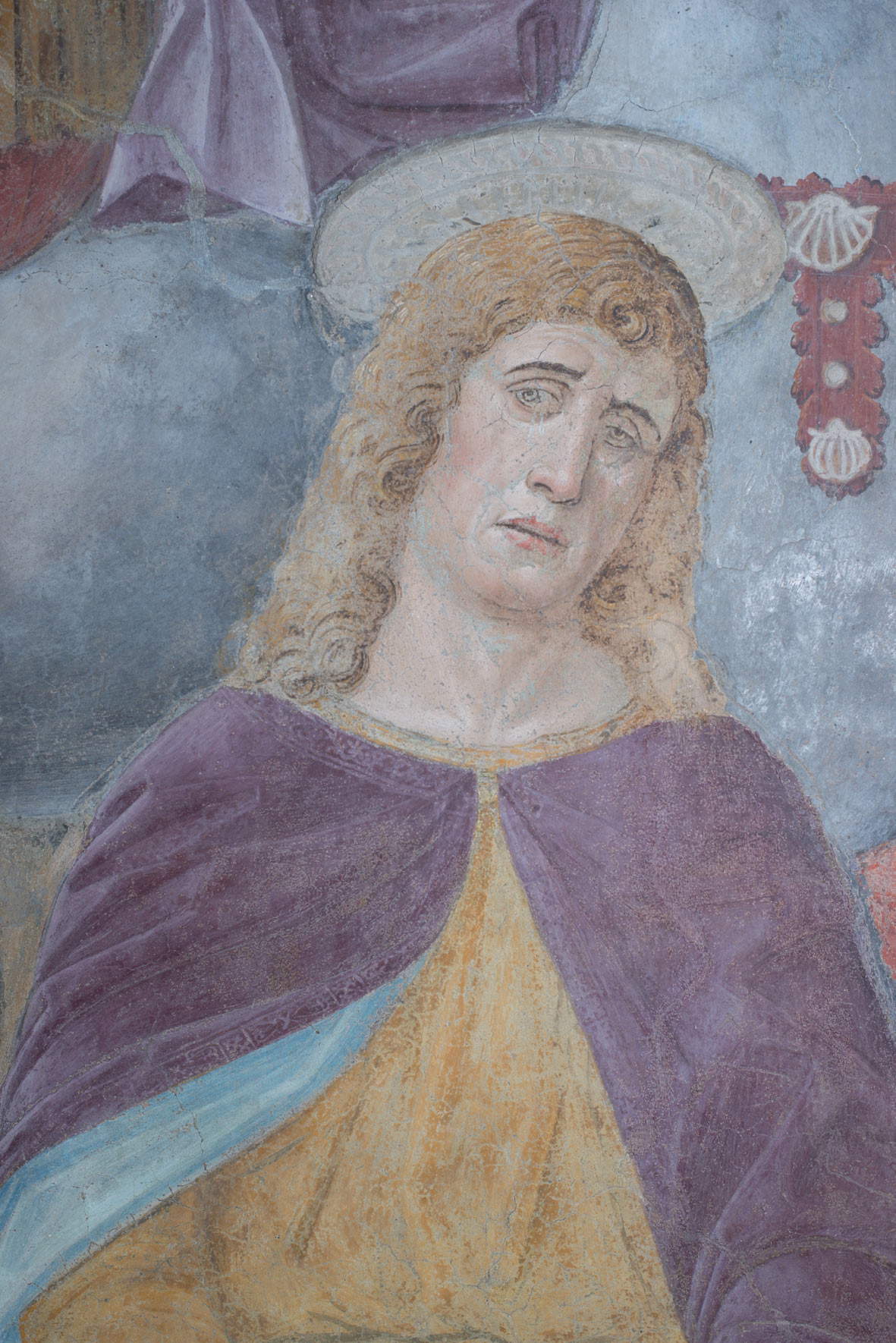
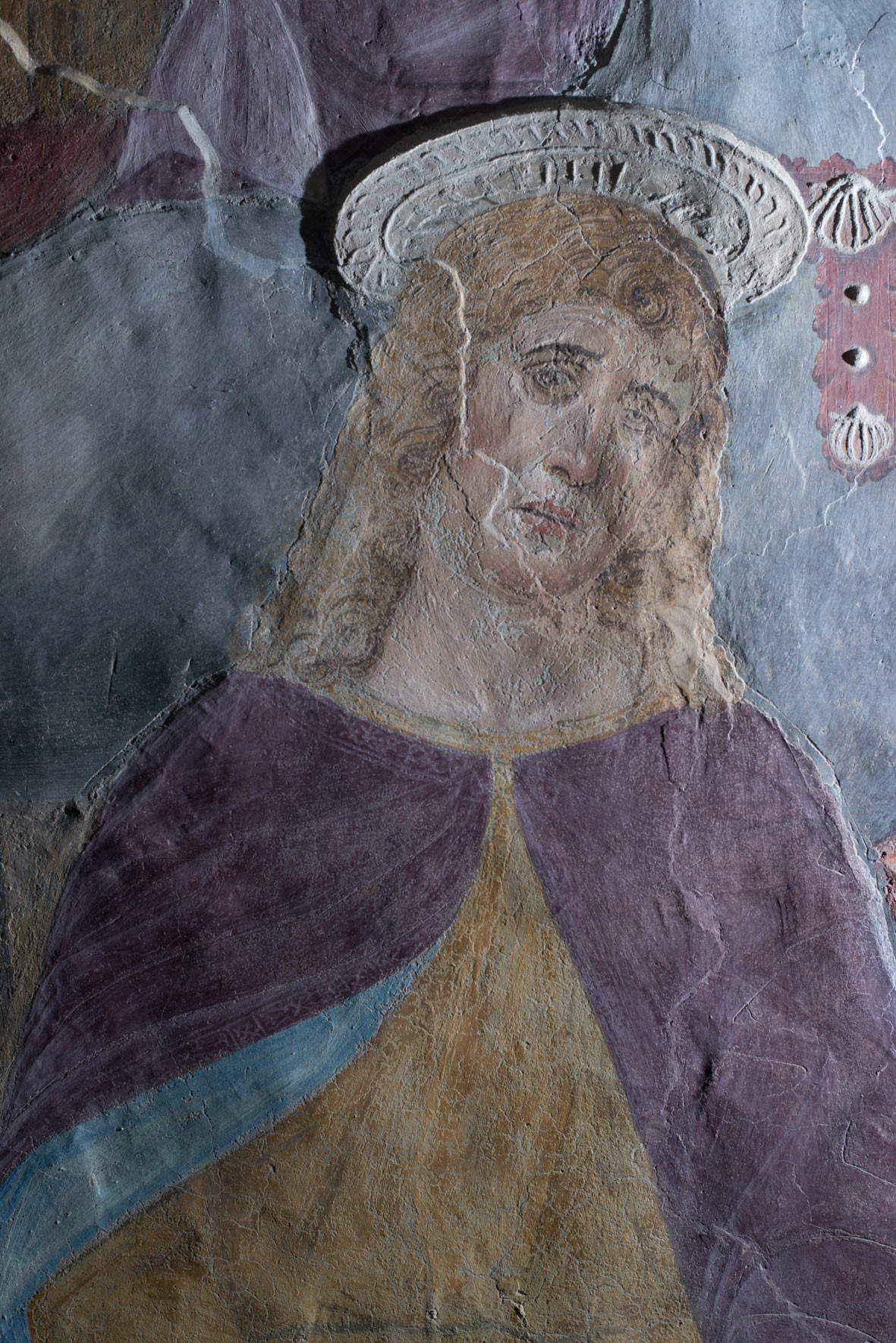
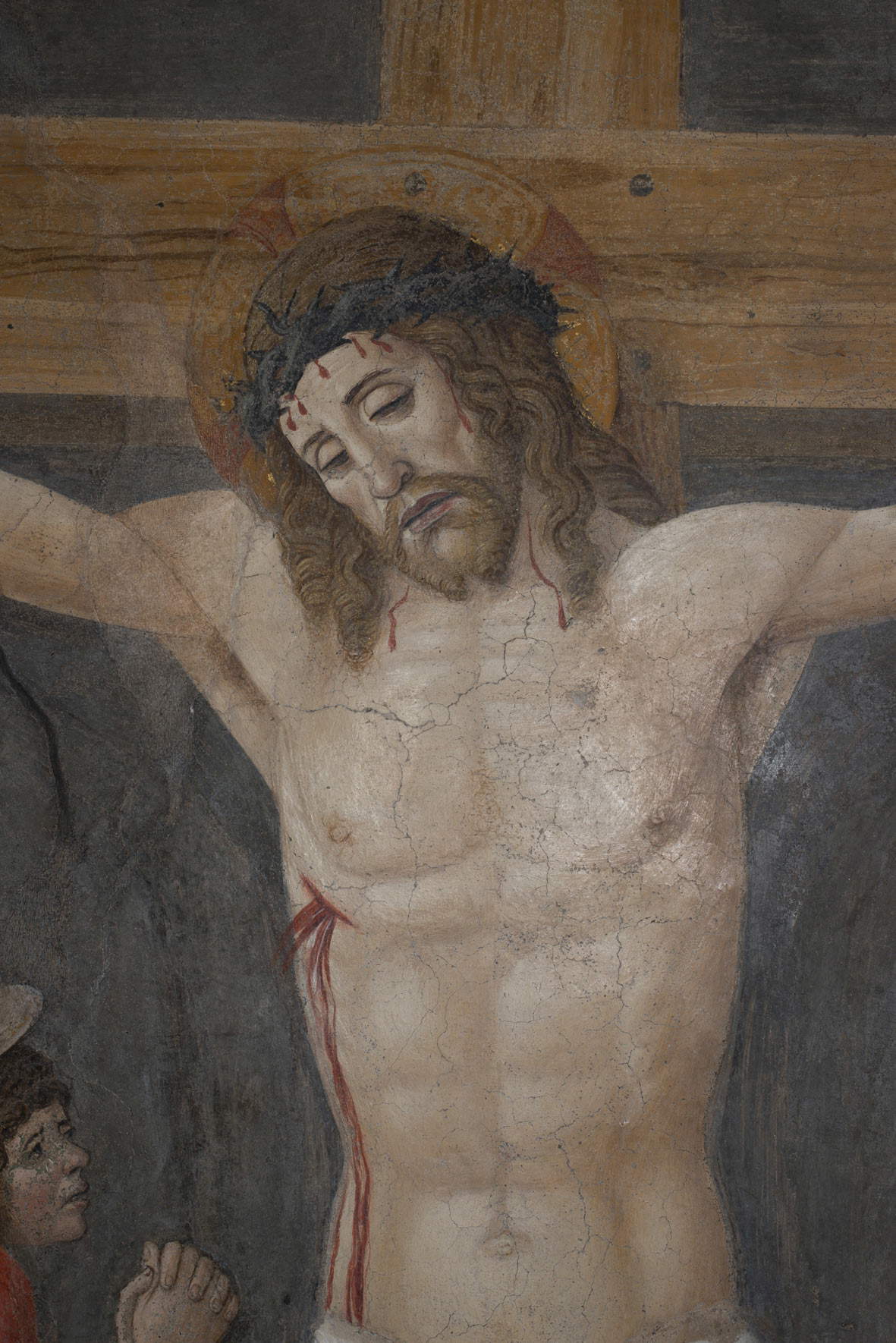
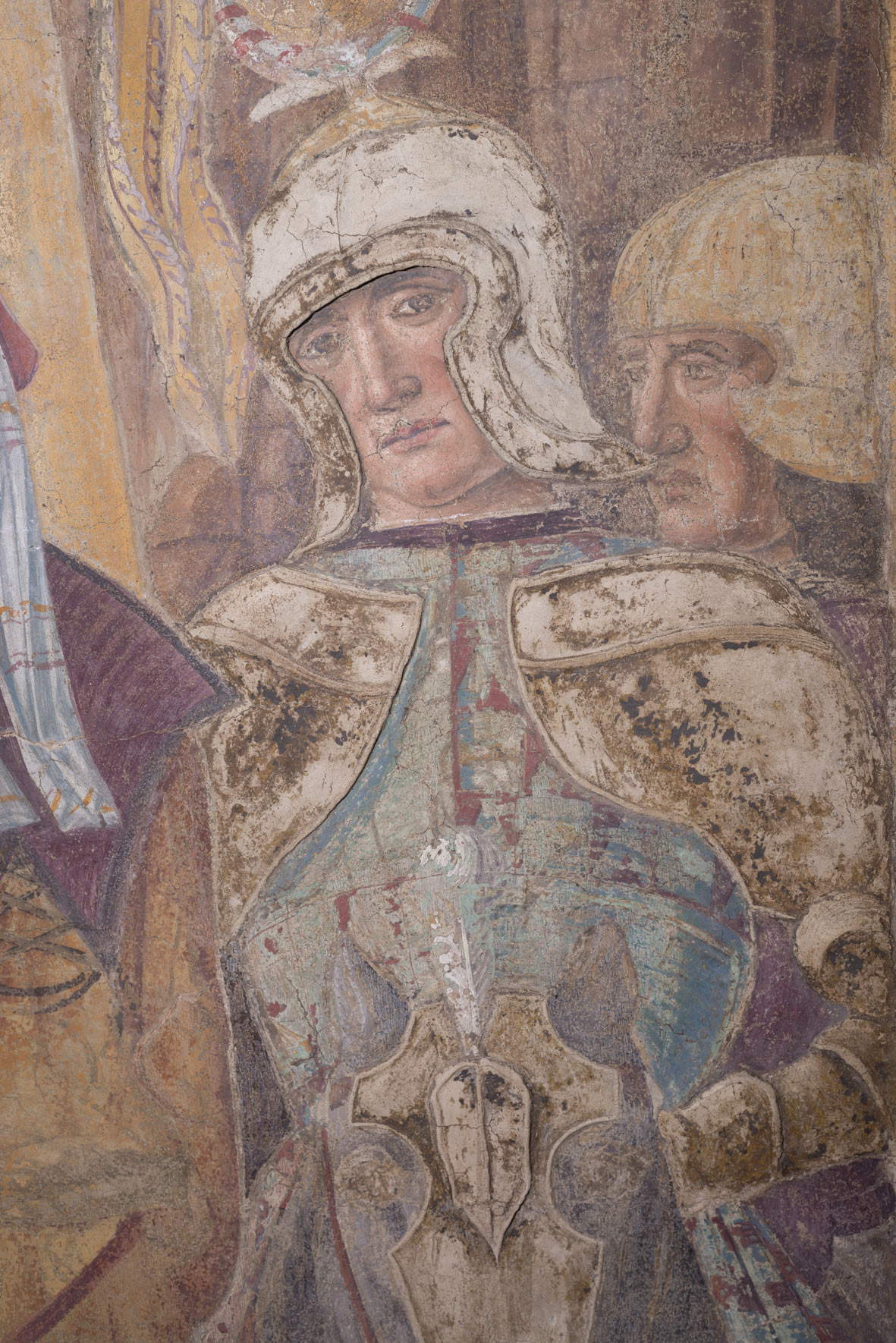
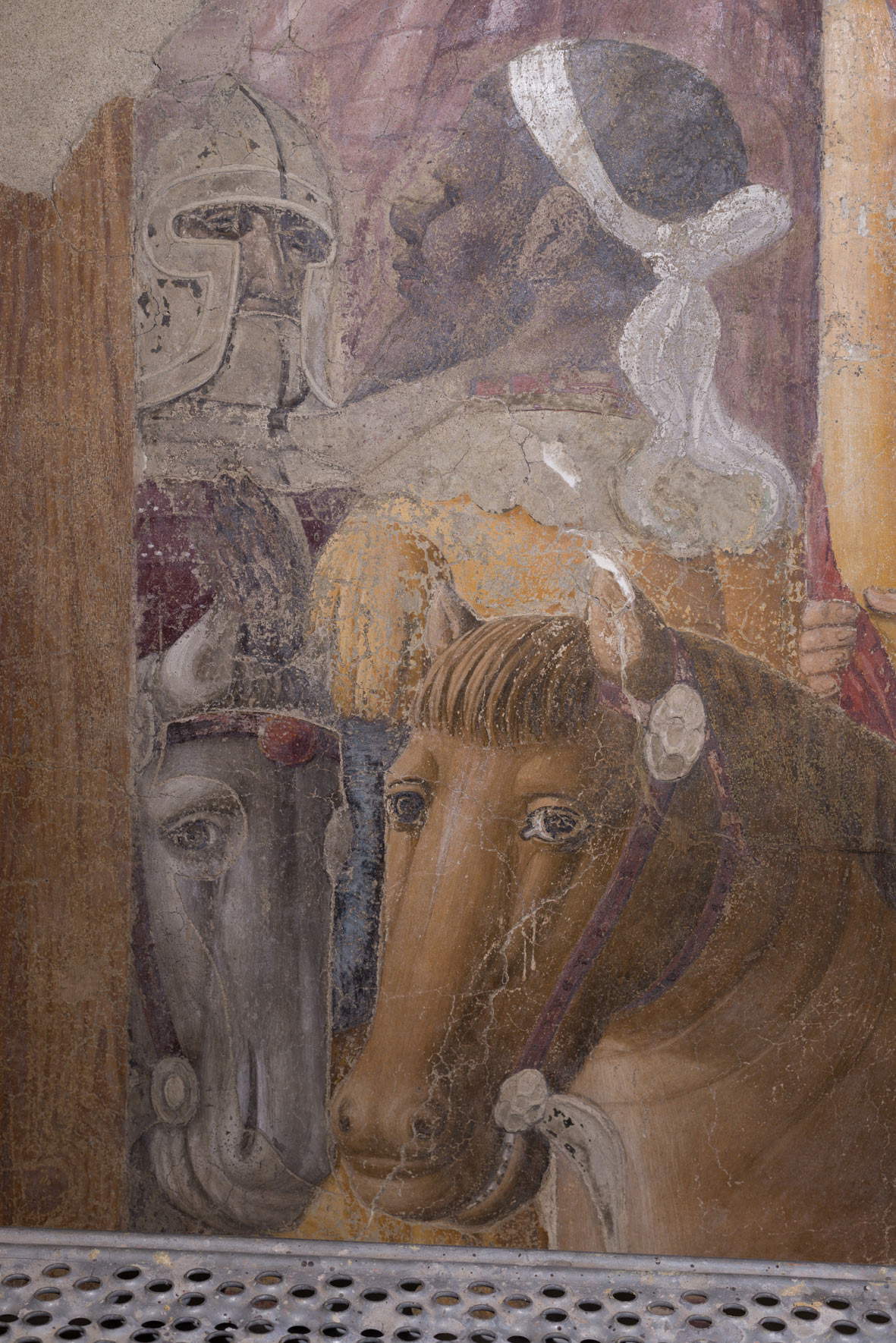
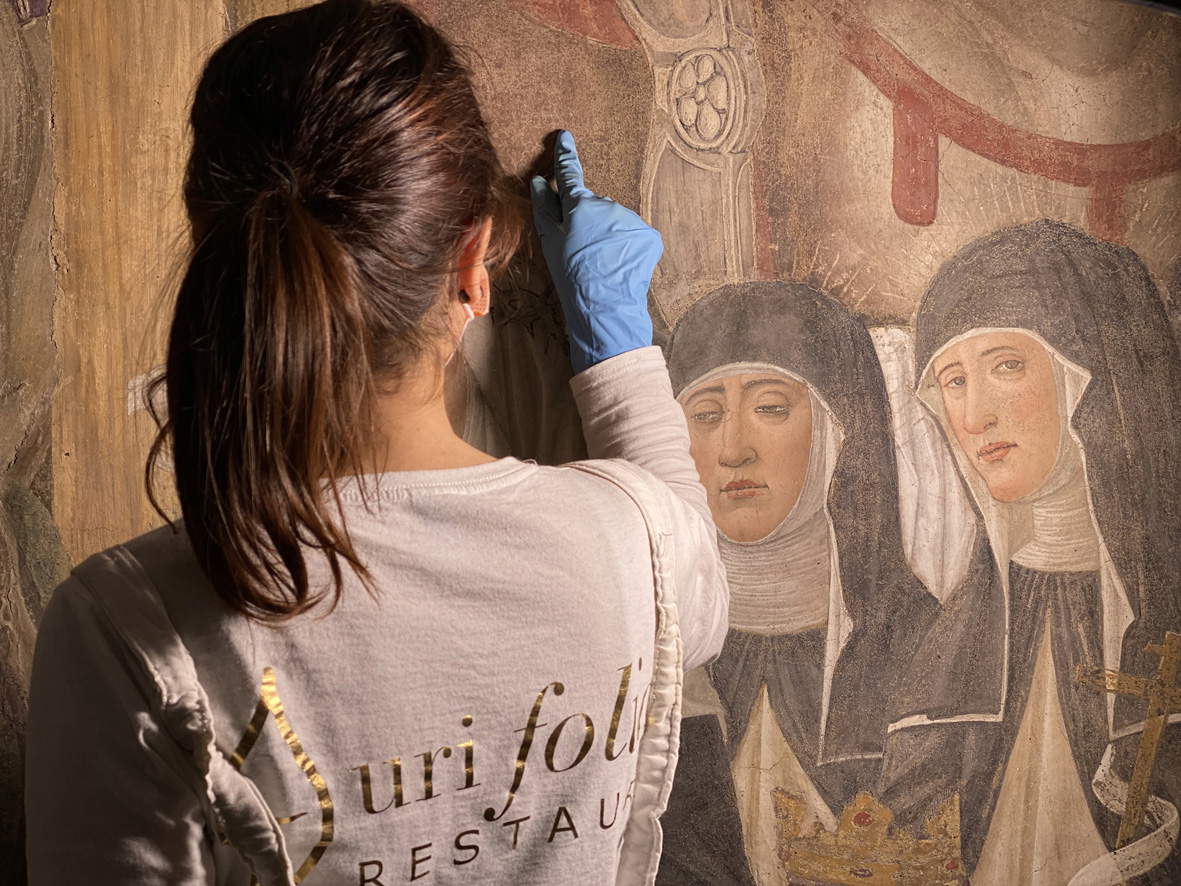
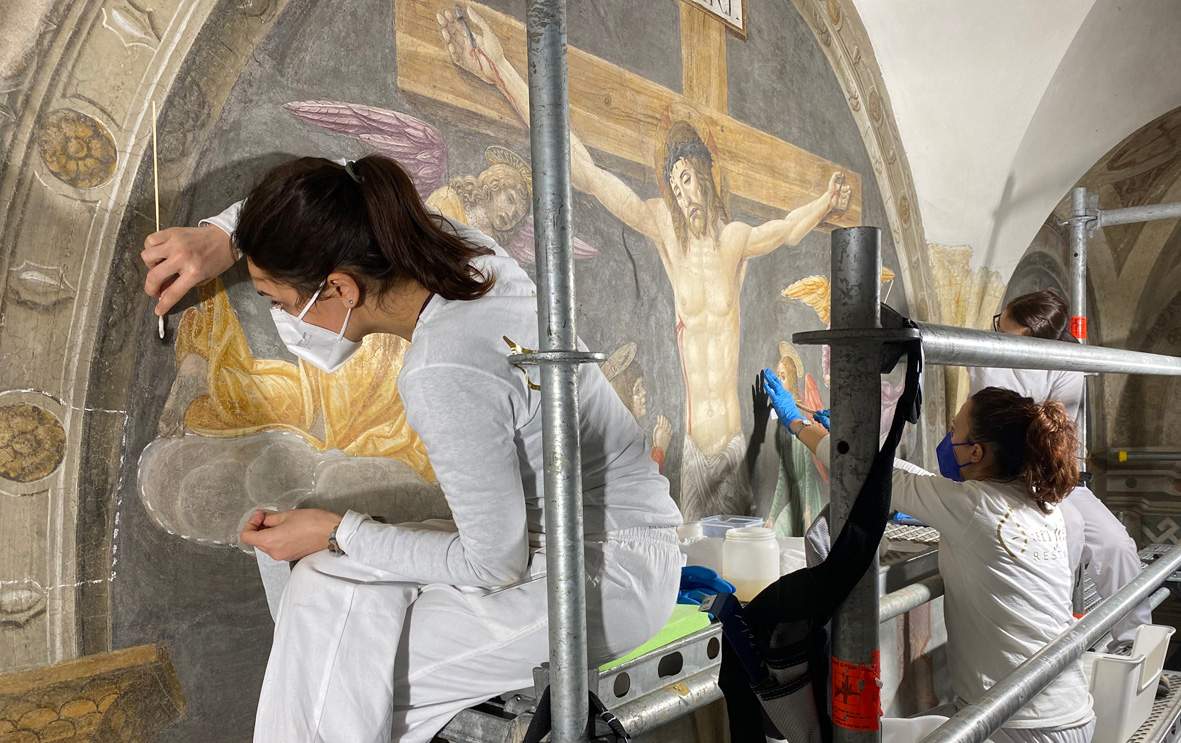
 |
| Start of restoration of Montorfano Crucifixion, opposite Leonardo's Last Supper |
Warning: the translation into English of the original Italian article was created using automatic tools. We undertake to review all articles, but we do not guarantee the total absence of inaccuracies in the translation due to the program. You can find the original by clicking on the ITA button. If you find any mistake,please contact us.





